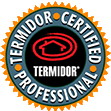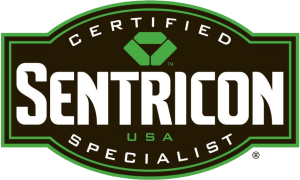Conventional termite treatment options are extremely effective at dealing with infestations, but some homeowners are interested in greener alternatives that retain some of that effectiveness. One of these ecologically friendly alternatives that has grown in popularity recently is the orange oil treatment. Orange oil is obtained from orange rinds, and it is also used in food additives and cleaning solutions. While it may not seem like it could work at first, orange oil contains D-limonene which will kill termites and their eggs on contact. Let’s take a look at the effectiveness of this treatment option, its benefits, and its drawbacks.
Why go with orange oil
The first benefit of orange oil is its low toxicity. This makes it safe to handle and use, and it makes it more environmentally friendly. It is considered effective against drywood termites, wood-boring beetles and carpenter ants. It is also safe enough to use in the home without the need for extra precautions, such as vacating the area in which the treatment is applied. It is not dangerous to pets or plants, and it does not contaminate food or medicinal supplies.
The drawbacks
Orange oil is not effective against subterranean termites, which are the most common species that can infest a home. It is also not 100% safe for humans. Prolonged heavy exposure to the oil or its fumes can cause skin and eye irritation, nausea, vomiting, and irritation of the lungs along with other symptoms. Orange oil is flammable so there is that extra risk.
To apply orange oil, you will have to drill holes in the wood, which is similar to other localized treatments, but is unlike treatment options such as fumigation which will leave the wood intact. Multiple treatments may be needed, since the oil will not eliminate a colony with a single application. The oil also does not offer protection against future infestation.
Orange oil vs. other treatment options
Looking at these pros and cons, we can see that orange oil has a very specific application – it can only be used against localized drywood termite infestations. If a drywood termite infestation is too large, you will need to fumigate, or if you are dealing with a subterranean termite infestation, you will need to go with a chemical barrier or a baiting system. Overall, it is a green treatment option that can be used instead of stronger chemicals when dealing with small drywood termite infestations.
If you would like to know more about termite treatments, or if you have a termite infestation in your home and you need some extra help, contact us today.







